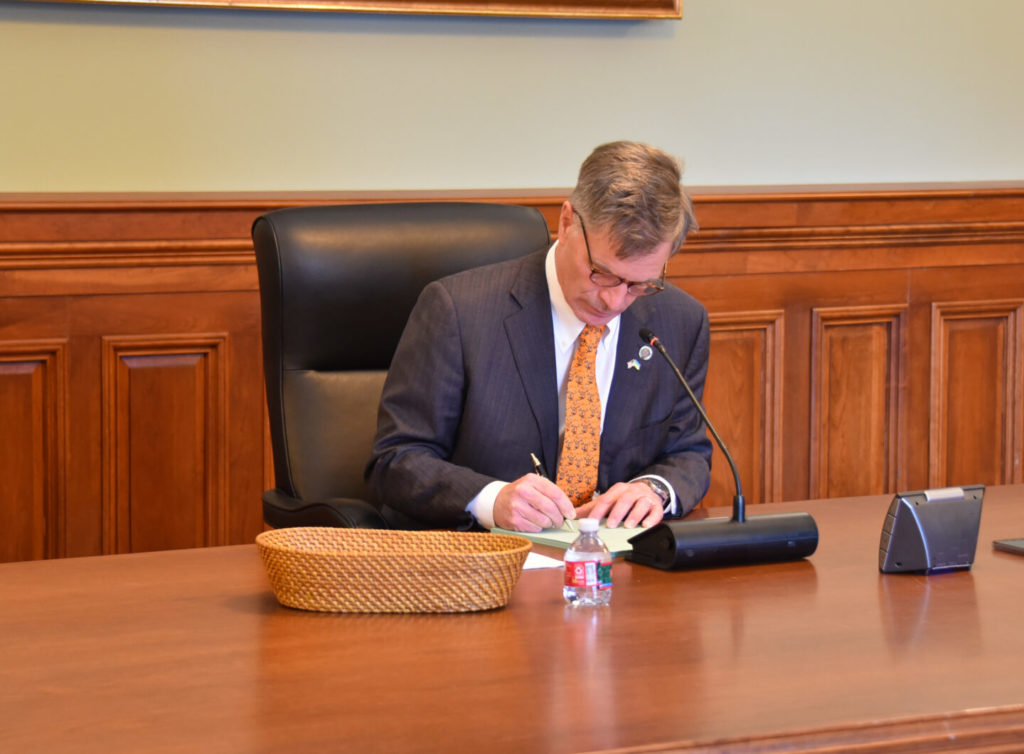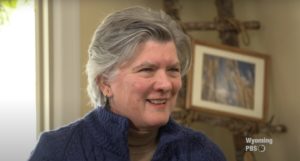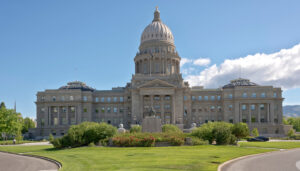Wyoming governor approves state’s first-ever school choice program, but with a catch
Wyoming Gov. Mark Gordon signed the state’s first school choice program into law, but not without vetoing part of the measure.
HB 166 – also called the Wyoming Education Savings Accounts…

Wyoming Gov. Mark Gordon signed the state’s first school choice program into law, but not without vetoing part of the measure.
HB 166 – also called the Wyoming Education Savings Accounts (ESA) Act – will create an ESA program for low-income students.
The scholarship amount is prorated based on family income. Families at 150% or less of the federal poverty level can receive $6,000; families at or below 200% receive $4,800, and so on until the income limit of 500%, according to the bill the governor received.
ESAs, even for the poorest families, would be a mere fraction of the cost of public education, which is nearly $17,000 per pupil in Wyoming.
HB 166 was approved 28-3 in the Senate and 34-27 in the House, before being sent to Gov. Gordon.
However, the governor decided to veto some provisions in the bill, effectively making any household over 150% of the poverty level ineligible.
That threshold is the equivalent of less than a $50,000 household income for a family of four, explained school choice advocate Corey DeAngelis.
Gordon explained his reasoning in a letter sent to the Wyoming Secretary of State on Thursday.
He wrote that “simply including some means testing that scales the amount of benefit does not give a program a public purpose or make it part of the ‘necessary support of the poor,’” as stipulated in Article 16, Section 6 of the state constitution.
Additionally, Gordon raised concerns about Article 7, Section 8 – also called a Blaine Amendment – since the program funding could go to religious schools.
Blaine Amendments are a relic of 19th-century anti-immigrant and anti-Catholic sentiments. Inspired by politician James G. Blaine, these amendments restrict public education funds from going toward religious schools.
The governor wrote the ESA program “might potentially violate provisions in our Wyoming Constitution that explicitly prohibit the allocation of public funds to [sectarian and religious schools],” but was willing to risk it since “recent US Supreme Court rulings in these matters could argue persuasively to our benefit.”
The rulings in question – Trinity v. Comer, Espinoza v. Montana, and Carson v. Makin – found it unconstitutional for private, religious institutions to be excluded from public funding purely due to their religious status.
Gordon concluded by urging state leaders to proceed cautiously with the new ESA program.
The program will launch in 2025.



